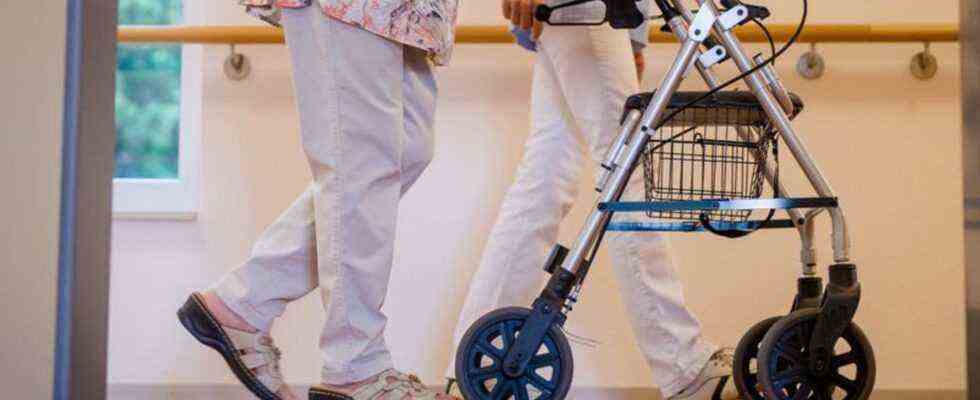Social
Study: Insufficient information on the quality of nursing homes
One study complains about a lack of transparency about the quality of nursing homes. Photo: Christoph Schmidt / dpa
© dpa-infocom GmbH
A study by the Bertelsmann Stiftung sees great differences between the federal states in terms of transparency. Consumers can only get important information about nursing homes in six countries.
According to a study, the majority of the federal states do not provide consumers with any information about the quality of nursing homes.
Important information such as the use of personnel is available in all countries, but remains under lock and key in most federal states, criticized the Bertelsmann Foundation when it presented the “White List” on Thursday. People who are looking for a nursing home are thus withheld information on key selection criteria.
In ten countries, data resulting from audits by the supervisory authorities responsible under national law are therefore not published at all. Consumers therefore do not find out whether there is a lack of staff in a home or whether there are serious deficiencies, as the foundation complained about. It is also difficult to understand which institutions are particularly well positioned.
Only North Rhine-Westphalia, Hamburg, Mecklenburg-Western Pomerania and Berlin actively published the results so that they are generally available. In Baden-Württemberg and Hesse, according to the foundation, the test results must at least be published by the nursing homes themselves. However, the data can currently only be viewed directly in the facilities, i.e. only accessible to a limited extent.
The lack of transparency arises either because there is no state regulation requiring publication or because existing laws are not being implemented. In Lower Saxony, Rhineland-Palatinate, Saarland, Saxony and Thuringia, publication of the test results is not legally stipulated. And the states of Bavaria, Brandenburg, Bremen, Saxony-Anhalt and Schleswig-Holstein do not implement existing laws for various reasons, which is “particularly serious”, it said in Gütersloh.
Hamburg stands out positively, where detailed information about temporary admission stops or results from relatives’ surveys are posted online. The most populous federal state of North Rhine-Westphalia is one of the four states in which the results of home examinations are published in such a way that they can also be accessed independently of visiting a facility.
Choosing a nursing home means a life decision and those affected depend on reliable information, emphasized Foundation Board Member Brigitte Mohn. It can also be used to make the good work of many nursing staff publicly visible. “Conversely, however, it should also be possible and permitted to identify the nursing homes where deficits exist.”
At the federal level, core results from quality tests have been available for a number of years via the “Pflege-TüV”, but at the state level things look different, according to Foundation expert Johannes Strotbek. In order to counter the patchwork and significant information gaps, all federal states should also disclose the relevant data that are available to the supervisory authorities. This could also provide impetus for a quality competition among the institutions. There is a need for specific legal requirements everywhere, which must then also be implemented. Consumers, information portals, advice centers and health services research should be able to freely access information on care quality.
At the same time, the foundation pointed out that the on-site operations of the supervisory authorities in all federal states were interrupted for months due to the pandemic, which is why there were data gaps.

